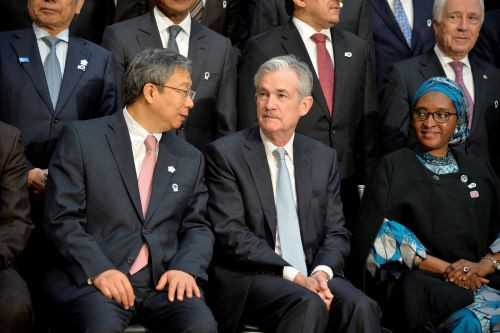Professor and Chair of the Department of Economics at LIU Post in New York Panos Mourdoukoutas advised that China would experience a long growth recession due to their ineffective methods in building wealth. He noted that China pursued bad investments that have not benefited its own economy resulting in diminished growth potential in recent years.
Mourdoukoutas claimed that China is experiencing a declining economic growth but the China-US trade war is not the primary cause. He believed that China's methods of improving its wealth after the Great Recession era were inefficient since it did not improve its growth rate.
The country had been investing in ventures that did not increase its productive capacity, reported Forbes.
According to Mourdoukoutas, China continues to build roads and bridges that lead nowhere. Its investments in factories that no longer produce competitive products and in building apartments that lack tenants hurts its overall economy.
According to Michael Beckley of Foreign Affairs, China's Gross Domestic Product (GDP) has risen due to its investments on infrastructure projects.
However, the constructions were ineffectual and adversely affected the country's wealth stock. He referred to the bad investments as having a "multiplier effect."
Beckley added that even though infrastructure projects create jobs and income for the Chinese population, they did not provide an "acceleratory effect."
This increased the country's unemployment rate since these workers were left unemployed after the completion of each project.
He also added that an excess of infrastructure projects also wasted the country's limited resources which could have been utilized for better use.
He also added building bridges that have lost its purpose is the primary cause of the country's slower productivity and reduced its economic growth.
He then added that China needs to increase its productivity if it wanted to accumulate wealth.
China also continued building duplicated factories that led to price wars. The result thereof reduced every company's profits, fueled capitalist production, and incurred capital accumulation.
Beckley also said that all of China's GDP growth has forced its government to increase its capital. Due to this, their spending skyrocketed and resulted in a standstill of its economic growth.
He also revealed signs of unproductive growth in the country. He cited that China has built 50 ghost cities where 20 percent of the residential areas are uninhabited and the government infrastructures are also rendered
Nonetheless, Beckley highlighted China's growth rate is still considered better than that of the US who have only maintained a two percent growth rate in recent years.
However, economists believe that China's growth rate may only be half of the official figure.






